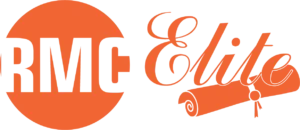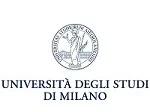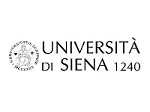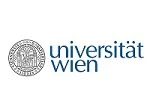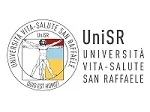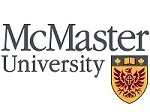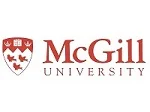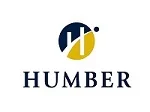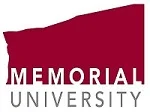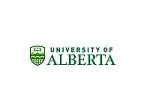
About Switzerland
Study in Switzerland: Switzerland is a small mountainous country located in central Europe. This landlocked country is about the size of New Jersey and is between France and Italy. It is also bordered by Austria, Germany, and Liechtenstein. Most of the population lives in the plateau which is between the high Alps in the south and the Jura mountains in the north. The mountainous area in the south is sparsely populated. Switzerland is known for its world-class academic institutions and decentralized education system. Studying in Switzerland offers ample opportunities and scope for international students to grow. Especially popular for its hospitality, medical sciences, and PhD programs, it is an excellent choice to study in Switzerland for international students.
The country is also one of the most preferred study abroad destinations for Indian students. An important part of studying in Switzerland for Indian students is that they need to meet the requirements set by an individual educational institute and the study visa. The country is safe and houses several reputed multinational companies, thus offering a promising job market. The scope for research and innovation is huge here. To plan their academic journey in Switzerland, students need to understand the estimated cost of study, admission requirements to study in Switzerland, visa process, top universities, and PR essentials.
Why Study in Switzerland?
- The education system in Switzerland is flexible and based on innovations. The decentralized education system offers a wide array of possibilities for international students to receive a quality education. International students can opt for undergraduate, postgraduate, and PhD programs at prestigious Swiss universities.
- Switzerland is home to some of high-ranked educational institutes. Universities like ETH Zurich, University of Lausanne, University of Zurich, University of Bern, University of Geneva, and others are known for their excellence in education globally.
- Education in Swiss institutions is offered in different languages, German, French, and English. The best thing about Swiss universities is that they do not ask for English language proficiency test scores from Indian students. If the students know basic English language writing and speaking, they can apply for a program. The IELTS exam is optional, as the majority of universities do not ask for one. Thus, an international student can study in Switzerland without IELTS.
- Switzerland is a safe country, as per a 2019 report by the Global Finance Magazine.
- Switzerland is home to 14 companies that are listed under Fortune 500. These companies offer international students a platform to build a rewarding career.
- As per the Global Innovation Index 2020, Switzerland is the most creative country.
- Around 25% of the country’s total population are international students who have settled there after completion of the course. It means Switzerland offers ample permanent residency and employment opportunities.
- Switzerland offers partial and full funding opportunities to international students. Scholarships like Swiss Excellence Scholarships for Foreign Students and ETH Zurich Excellence Scholarships offer 100% funding to deserving students.
- Switzerland welcomes international students wholeheartedly. The country has a vibrant lifestyle and multicultural environment that allows international students to integrate and mix well with the Swiss way of life.
What to study in Switzerland
Here is the list of best courses that you should pursue in Switzerland:-
- Artificial Intelligence Degrees in Switzerland
Artificial intelligence (AI) is a relatively new degree subject. With the rise of artificial intelligence, and the prominence of new technology, education is becoming increasingly important. A degree in artificial intelligence would allow you to be prepared to work in an area of computer science that is only going to become more utilized and improved.
It is common for artificial intelligence to offered as a joint honors degree alongside a more generic computer science degree. This format ensures that you have a foundation of computer science knowledge, as well as specialist knowledge in artificial intelligence.
- Business Management Degrees in Switzerland
The way a business is run is very important, as it can be make or break. If a business does not have effective management, it cannot perform at its best. Management is required across all departments, including marketing, human resources, and accounting. A degree in business management will provide you with the skills to efficiently lead an organization, no matter the size. You will develop skills in monitoring performance, activities, and employees, as well as planning for all aspects of the business.
An undergraduate degree will give you a good foundation in knowledge of business management.
- Masters in Digital Media
Digital media is a discipline that combines creative arts with business and communication. As someone working in digital media, you will need to have an understanding of how media is consumed, who your audience is, and how to convey your message. This form of media is increasingly popular, and is becoming the only way many brands and businesses choose to communicate with their audiences and customers.
During a master’s in Digital Media, you will build upon the knowledge and skills you gained at the undergraduate level, further developing your abilities.
- Finance Degrees in Switzerland
Finance generally refers to the handling or acquiring of money and funds. This can involve personal finance, corporate finance or public finance. However, finance is a very broad term that can refer to different aspects of the financial field. It plays a crucial part in most businesses and sectors, as the handling of money is very important.
An undergraduate degree in finance will normally give you a foundation knowledge of all finance areas.
- Hotel Management Degrees in Switzerland
Hotel management includes overseeing the daily functions of a hotel, from room management to the upkeep of facilities. As well as this, you will be responsible for maintaining good working relationships with the many clients using your service.
An undergraduate degree in hotel management will give you a good foundation of knowledge in the area.
- Public Relations Degrees in Switzerland
Public relations (PR) is concerned with the management and distribution of information about an individual or organisation to the general public or other organisation to affect their public perception. This can involve communicating on behalf of the individual or organisation, managing their business affairs and social appointments, and disseminating information that is relevant or important, among other things. A public relations manager plays an important role in the maintenance of the success and reputation of individuals, businesses and organisation.
During a Public Relations degree, you will cover a range of subjects, from business management to communications.
Top universities in Switzerland
| Name of the institution | World Ranking |
|
EU Business School |
62 |
| University of Lausanne | 146 |
| university of Applied Sciences and Arts Northwestern Switzerland | 2594 |
| University of Geneva | 101 |
| University of Neuchatel | 779 |
| ETH Zurich | 14 |
| American University of Switzerland | 701 |
| University of Basel | 150 |
| University of Zurich | 64 |
| University of Bern | 114 |
| Swiss Federal Institute of Technology, Zurich | 26 |
| University of St. Gallen | 301 |
The tuition cost to study in Switzerland is relatively affordable in comparison to other European countries. The tuition cost will depend on whether you take admission to a public university or a private university. Public universities like the University of Lausanne, ETH Zurich, University of Basel, and University of Applied Sciences and Arts Northwestern Switzerland.
Offer affordable tuition costs. On the other hand, taking admission to private Swiss universities will be expensive. The best way to understand the tuition cost is based on the course type and level of study.
- Bachelor’s degree programs cost between INR 13,59,000- 17,62,000.
- Master’s degree programs cost between INR 2,21,000- 9,55,000.
The living cost in Switzerland for Indian students will depend on the city and location. On average, an Indian student needs around INR 1,02,000-1,32,000 every month to cover accommodation, transport, food, and utility expenses.
In Switzerland, cities like Bern, Geneva or Zurich are very expensive. If students are living in these three cities, the average monthly living cost will exceed INR 1,71,300. The accommodation costs will be between INR 46,800-54,500 on an average monthly basis. For university accommodation, it will be between INR 35,000-62,300 per month. For shared flats and rentals, it will cost between INR 54,500-9,34,000 monthly.
Transportation cost is minimal, around INR 4,000 monthly, across different modes of transport like bus, metro, tramways, and trains.
How to study in Switzerland with scholarships
Swiss universities offer full and partial funding opportunities to meritorious students. The scholarship programs may cover tuition fees, health insurance, housing allowance, monthly payment, and airfares.
The scholarship is available to students with bachelor’s, master’s, or PhD degrees from a recognized study board.
Below are some of the noted scholarship programs:
- Graduate Institute Geneva Scholarships
- University of Geneva Excellence Masters Fellowships
- IMD MBA Scholarships
- University of Lausanne Masters Grants for Foreign Students
- Prima Grants
- University of Zurich Scholarships for PhD Candidates
- Nestle MBA Scholarships for Women from Developing Countries
- International Postdoctoral Fellowships
- EPFL Excellence Scholarships
- Swiss Government Excellence Scholarships
Career/Jobs After Studying In Switzerland
While offering a comparatively stable and flourishing economy, Switzerland is still a smaller market. Hence, there is steady competition for employment, especially since locals are first preferred for jobs than their foreign counterparts as far as many Swiss companies are concerned. International workers, however, have better prospects in leading cities like Geneva, Basel, Bern, Zurich, and Lausanne.
Jobs are mostly available throughout the hospitality sector and industries like banking, IT, insurance, engineering, and pharmaceuticals. Those looking to build pharma careers will find openings in Basel, while insurance and banking careers are primarily in demand throughout Zurich.
Some of the biggest recruiters in Switzerland include various MNCs such as Glencore, Adecco, Credit Suisse, Roche Group, Nestle, Zurich Insurance, Novartis, ABB, SGS, and even leading global organization’s like the World Economic Forum, the United Stations, the Red Cross, the World Trade Organisation, and the International Olympic Committee.
Salaries in Switzerland are amongst the highest throughout the EU/EFTA nations as per reports. Gross wages stood at CHF 6,538 (INR 5.33 lakh) for 2018, according to studies with Zurich offering the highest salaries of CHF 6,965 (INR 5.68 lakh).
The highest (per month) salaries in Switzerland include CHF 15,000 (INR 12.24 lakh) for those in top management and public service positions and CHF 10,000 (INR 8.16 lakh) for auditors and tax advisors. Doctors, nurses, medical assistants and pharmacists usually earn around CHF 10,770-20,000 (INR 8.79 lakh to INR 16.32 lakh). Legal professionals earn approximately CHF 9,000, while engineers may earn up to CHF 8,420 (INR 6.87 lakh). At the same time, software or IT engineers may earn CHF 7,730 (INR 6.31 lakh), while skilled technicians may earn up to CHF 7,700 (INR 6.28 lakh). Teachers usually earn approximately CHF 7,280 (INR 5.94 lakh) per month. These are some of the highest-paid jobs in Switzerland. The working hours can be long, ranging from 45 to 50 hours a week.
Application process to study Switzerland
The application process for Swiss universities is very simple. The process is as follows:-
- Choose a program
As a technologically advanced society, Switzerland is a popular study destination for disciplines like IT or computer science and engineering. In addition, it offers top quality degrees in finance and accounting, banking and business administration. Take into consideration the reasons that led you to choose Switzerland and listen to your inner passions and career aspirations. Then choose wisely the program you want to apply for!
- Check the admission criteria
Depending on the objective, your nationality and the academic level of your studies, there are particular admission requirements you need to pay special attention to when preparing your application process for Swiss universities. Make a detailed plan and contact your nearest Swiss Embassy or Consulate for additional information. You can also contact the student support services of your universities for additional queries.
- Prepare the documents
Switzerland is a multilingual country so you might need to translate your documents in either French, Italian or German, depending on the location of your preferred institution. Your Swiss Embassy assists you during that process by offering translation services. Overall, the documents you will need for applying to Swiss universities are:
- Fully filled and signed application form.
- A valid passport and passport-size photographs.
- High school diploma or previous academic transcripts and diplomas, if applicable.
- Language proficiency certificates in English, Italian, French or German.
- Curriculum vitae.
- Letter explaining the reasons you chose to study in Switzerland.
- Evidence of paying the application fee.
- Keep in mind that depending on the Swiss canton your university is located, you might be required to submit additional documents.
- Submit your application
When you have gathered, filled, signed and translated the necessary documents, it is finally time to submit your application. There is no centralized admissions system for applying to Swiss universities. Once you’ve chosen your program, explore the institution’s website to make sure you fulfill the academic requirements for admission and then apply directly to the institution through their application portal. For private institutions contact the institutions directly, as they have their own admission rules.
- Apply for a visa/residence permit
Congratulations! You are officially a student in Switzerland. After you receive your letter of admission, then you should apply for a visa/residence permit as soon as possible, since the procedure might take time for long-term visas. Contact your nearest Swish Embassy or Consulate for more information about the visa procedure.
- Arrive in Switzerland
After you have gained admission and obtained your student visa, there is nothing left to do than start looking for a student home. Search online in various student forums or contact your university directly. Freshen up your foreign language skills, prepare your luggage and book a flight for Switzerland. A special study experience is about to begin!
Why Take Admission Through Us?
RMC Elite constantly assists students with entrance, scholarship availability, placements, and other services.
Counseling and Mentoring
The experienced staff at RMC Elite advises you on the finest colleges, courses, scholarship opportunities, and more.
College Profiles
We frequently provide thorough information about individual schools and universities, such as academic programs, campus culture, student life, and admission data, on our website. This information can assist students in gaining a better understanding of what a certain school is like and whether it is a suitable fit for them.
College Search Tools
The RMC educational website includes college search tools that allow students to filter and compare institutions based on factors including location, size, majors, pricing, and entrance requirements. These tools can assist students in narrowing their options and locating colleges that fit their specific requirements.
Test Planning
The team is dedicated to assisting you in preparing for international language exams and clearing screening tests such as TOEFL, IELTS, and others using the most up-to-date practice and curriculums.
The Application Procedure
RMC Elite prioritizes all processes, including profile evaluation, application form completion, admissions locking, Visa preparation, and much more.
Frequently Asked Question
Highlighs
About Study In Switzerland
Benifits of Study In Switzerland
Scholarships for Study Switzerland
